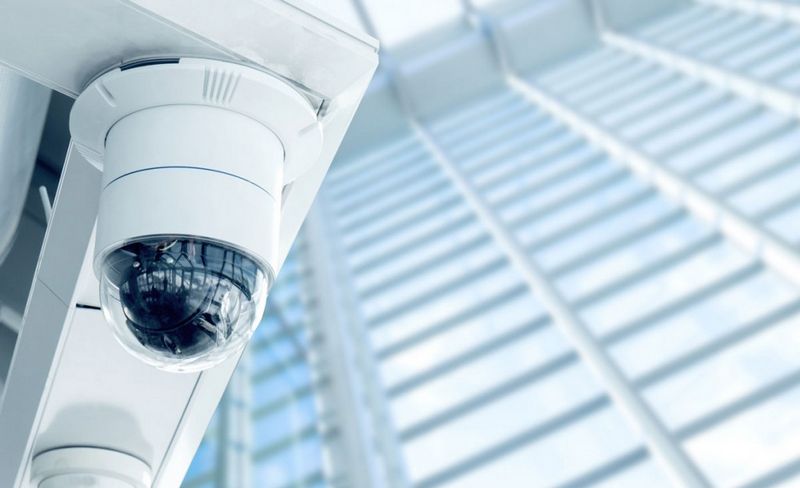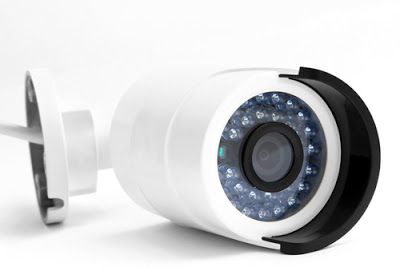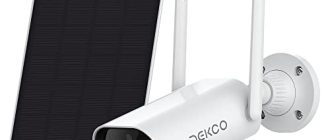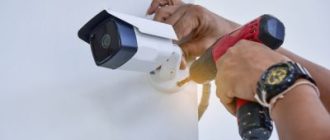
CCTV Cameras – Pros And Cons
Closed-circuit television (CCTV) cameras have become increasingly popular in both public and private spaces. These cameras, also known as video surveillance systems, have both pros and cons. On one hand, CCTV cameras provide enhanced security by deterring crime and allowing for the capture of criminals. They can be particularly effective in public places such as shopping malls and parking lots, as they help to create a safer environment.
Furthermore, CCTV cameras can provide valuable evidence in legal proceedings, as they record incidents that may occur. This can help to solve crimes, settle disputes, and ensure justice is served. Additionally, the presence of CCTV cameras can boost productivity and prevent employee misconduct in the workplace, as individuals are aware that their actions are being monitored.
However, there are also disadvantages to the use of CCTV cameras. One of the main concerns is the invasion of privacy. People may feel uncomfortable knowing that their every move is being watched and recorded. This can create a sense of distrust and limit personal freedom. Additionally, there is the possibility of misuse or abuse of the footage captured by CCTV cameras, raising concerns about data protection and unauthorized access.
In conclusion, CCTV cameras have their pros and cons. On the one hand, they provide enhanced security, valuable evidence, and increased productivity. On the other hand, they raise concerns about invasion of privacy and the potential for abuse. It is important to carefully weigh the advantages and disadvantages of CCTV cameras before implementing them in any environment.
The Advantages and Disadvantages of CCTV Cameras
Advantages of CCTV Cameras:
- CCTV cameras provide round-the-clock surveillance, ensuring constant monitoring of an area.
- They act as a deterrent to potential criminals, as the presence of CCTV cameras can discourage illegal activities.
- CCTV footage can be used as strong evidence in legal proceedings, helping to solve crimes and bring perpetrators to justice.
- These cameras can be installed in various locations, such as public places, businesses, and homes, providing a wide coverage area.
- CCTV cameras can be remotely accessed and monitored, allowing for real-time surveillance and immediate response to any suspicious activity.
- They enhance public safety by improving the overall security and reducing the risk of crimes in the monitored areas.
Disadvantages of CCTV Cameras:
- CCTV cameras can sometimes invade privacy, as they constantly monitor and record individuals’ activities in both public and private spaces.
- There is a risk of misuse or abuse of CCTV cameras, as they can be operated by unauthorized individuals or used for unethical purposes.
- The installation and maintenance of CCTV cameras can be costly, requiring financial resources for equipment, infrastructure, and personnel.
- CCTV cameras may create a false sense of security, as they cannot prevent crimes from happening but only provide evidence after the fact.
- There is a potential for technical failures or glitches, such as camera malfunctions or system errors, which can compromise the effectiveness of CCTV surveillance.
- The constant surveillance and monitoring by CCTV cameras can lead to a loss of personal freedom and civil liberties, raising concerns about a growing surveillance state.
In conclusion, while CCTV cameras have their advantages in terms of enhancing security and providing valuable evidence, they also come with disadvantages related to privacy, costs, and potential misuse. It is crucial to strike a balance between safety and personal freedoms when implementing and using CCTV systems.
High-Quality Surveillance
CCTV cameras offer high-quality surveillance, providing clear and detailed images of monitored areas. This can be highly beneficial in various situations such as preventing and solving crimes, monitoring traffic, ensuring safety in public spaces, and enhancing security measures in both residential and commercial properties.
One of the advantages of high-quality surveillance provided by CCTV cameras is the ability to capture and record footage of incidents, which can be crucial in identifying and apprehending criminals. The clear and detailed images produced by these cameras can serve as valuable evidence in investigations and court proceedings.
In addition, high-quality surveillance helps in monitoring traffic and ensuring public safety. CCTV cameras installed in busy areas and intersections can help control and regulate traffic flow, reduce congestion, and improve road safety by detecting and monitoring violations such as speeding, reckless driving, and red light running.
Furthermore, the presence of high-quality surveillance cameras can act as a deterrent to potential criminals, contributing to a safer environment. The visible presence of CCTV cameras often discourages individuals from engaging in illegal activities, as they know their actions are being closely monitored and recorded.
However, it is important to consider the potential drawbacks of high-quality surveillance through CCTV cameras. Privacy concerns can arise, as the constant monitoring and recording of individuals and public spaces may infringe on personal privacy rights if not properly regulated.
In conclusion, high-quality surveillance offered by CCTV cameras has various advantages, including capturing clear and detailed images, aiding in crime prevention and investigation, monitoring traffic, ensuring public safety, and acting as a deterrent. Nonetheless, it is crucial to balance the benefits with privacy considerations and establish proper regulations for the use of surveillance cameras.
Crime Prevention
One of the main advantages of CCTV cameras is their ability to prevent crime. The presence of surveillance cameras can act as a deterrent to criminals, as they know they are being watched and are less likely to commit crimes in areas covered by CCTV.
CCTV cameras provide constant monitoring, allowing for quick response times to any suspicious activities or incidents. This can help in preventing crimes from occurring or escalating, as authorities can be alerted and intervene in a timely manner.
In addition, CCTV cameras can provide valuable evidence in the event of a crime. The footage captured by these cameras can be used to identify suspects, document incidents, and support investigations. This can be crucial in solving crimes and bringing criminals to justice.
However, there are also some drawbacks to the use of CCTV cameras for crime prevention. One of the main concerns is the invasion of privacy. Constant surveillance can infringe on individuals’ rights to privacy, especially if the cameras are placed in private locations such as residential areas or bathrooms.
Additionally, CCTV cameras are not foolproof and can have limitations. They can be tampered with or vandalized, rendering them ineffective. Moreover, criminals can adapt and find ways to bypass or avoid detection, such as wearing disguises or finding blind spots in the camera coverage.
Effective Deterrent
One of the key advantages of CCTV cameras is their capability to serve as an effective deterrent against criminal activities. The presence of surveillance cameras in public places such as streets, parking lots, and retail stores can significantly reduce the likelihood of criminal behavior.
CCTV cameras act as a visible reminder to potential wrongdoers that their actions may be under constant scrutiny. Knowing that their activities are being recorded can make individuals think twice before committing crimes such as theft, vandalism, or assault. The fear of being caught on camera and the subsequent legal consequences can deter criminals from engaging in illegal activities.
Moreover, CCTV cameras can also enhance the safety of individuals by discouraging personal attacks and acts of violence. The knowledge that their actions are being captured on camera may prevent individuals from engaging in physical altercations or using violence to resolve conflicts. This can create a safer environment for both individuals and communities as a whole.
In addition to acting as a deterrent to criminal behavior, CCTV cameras can also aid in the identification and apprehension of suspects. By capturing video footage of incidents, law enforcement authorities can use the recordings to identify individuals involved in criminal activities. This can help expedite investigations and lead to the arrest and prosecution of offenders.
However, it is important to note that while CCTV cameras can be an effective deterrent, they are not foolproof. Some individuals may be undeterred by the presence of surveillance cameras, especially if they are skilled or determined criminals. Additionally, there are ethical concerns surrounding the use of CCTV cameras, such as invasion of privacy and the potential for misuse of recorded footage.
Overall, CCTV cameras offer a range of advantages, including their effectiveness as a deterrent against criminal activities. By providing a constant reminder of surveillance and the potential consequences, these cameras help create a safer environment for both individuals and communities.
Increased Sense of Security
CCTV cameras are widely used for surveillance and security purposes. One of the main advantages of CCTV cameras is that they can help increase the sense of security in an area.
Consisting of multiple cameras strategically placed in different locations, CCTV systems provide continuous monitoring and recording of activities. This constant surveillance creates a deterrent effect, as potential wrongdoers are aware that they are being watched. This can result in a reduced likelihood of crimes being committed, as criminals are more likely to think twice before engaging in any illegal activity knowing that they may be recorded and identified.
CCTV cameras also contribute to public safety by enabling authorities to monitor high-risk areas, such as busy city streets or public transport stations. This allows for quick response times in the case of emergencies or criminal incidents, as footage from CCTV cameras can be accessed in real-time.
Furthermore, CCTV cameras can provide valuable evidence for investigations. In the event of a crime or incident, the recorded footage can be used to identify suspects, gather evidence, and aid in the prosecution of criminals.
- In summary, the increased presence of CCTV cameras can create a heightened sense of security in an area. They act as a visible deterrent, enhance public safety, and provide crucial evidence for investigations.
/7 Monitoring
One of the main advantages of CCTV cameras is constant monitoring. With CCTV cameras installed, you can have 24/7 surveillance of your property or area of interest. This allows you to keep an eye on any suspicious activities or potential threats, even when you are not physically present.
By having constant monitoring, CCTV cameras provide a sense of security and deter crime. Criminals are less likely to target an area that is being actively monitored, as the risk of being caught and identified is much higher.
However, there are also some cons to constant monitoring. It can be seen as an invasion of privacy, as people may feel uncomfortable knowing that they are being watched at all times. Additionally, constant monitoring requires a significant amount of manpower and resources to effectively analyze and respond to any incidents that may occur.
Overall, constant monitoring provided by CCTV cameras can be both a benefit and a drawback, depending on the perspective. It offers increased security and crime prevention, but also raises concerns about privacy and the allocation of resources.
Evidence Collection
One of the major advantages of CCTV cameras is the ability to collect valuable evidence. Security cameras can capture incidents and activities in real-time, allowing law enforcement and other authorities to review the footage later for investigative purposes. This evidence can be crucial in identifying and apprehending criminals, as well as in providing proof in legal proceedings.
With CCTV cameras, law enforcement agencies can rely on recorded audio and video footage to establish a clear timeline of events, identify suspects, and gather crucial evidence. This can potentially lead to higher conviction rates and a safer society.
However, there are also some cons to consider when it comes to evidence collection through CCTV cameras. It is important to ensure that the cameras are properly installed and maintained to prevent tampering or manipulation of footage. Additionally, privacy concerns may arise when the cameras record activities in public spaces or private properties. Striking a balance between increased security and privacy rights is a challenge that needs to be carefully addressed.
Reduced Theft and Vandalism
One of the main advantages of CCTV cameras is their ability to reduce theft and vandalism. By having surveillance cameras in place, criminals are less likely to target a specific area or property due to the increased risk of being caught on camera.
CCTV cameras act as a visual deterrent, making potential thieves or vandals think twice before committing a crime. Knowing that their actions will be recorded and potentially used as evidence against them can discourage people from engaging in illegal activities.
Moreover, the presence of CCTV cameras can help monitor and detect suspicious behavior in real-time. Security personnel or authorities can be alerted immediately if any unlawful activity is captured on camera, allowing for a quick response and potentially preventing a crime from taking place.
However, it’s important to acknowledge that there are some cons to the use of CCTV cameras. Privacy concerns can arise as these cameras can intrude on individuals’ personal lives if not used responsibly. Additionally, the cost of installing and maintaining CCTV systems can be a significant investment for businesses or property owners.
Overall, the pros of reduced theft and vandalism outweigh the cons in many cases, as the benefits of CCTV cameras in deterring and preventing crime have been proven effective.
Improved Traffic Management
One of the main benefits of CCTV cameras is the improved traffic management they provide. By installing CCTV cameras in strategic locations on roads and highways, authorities can monitor and control traffic more efficiently.
The use of CCTV cameras allows traffic management personnel to observe the flow of vehicles in real-time. This enables them to identify traffic congestion, accidents, and any other disruptions on the roads promptly. With this information, they can then implement appropriate measures to alleviate congestion and manage traffic more effectively.
CCTV cameras also contribute to the enforcement of traffic regulations and laws. Traffic violations such as speeding, running red lights, and illegal parking can be captured on camera, providing evidence for law enforcement officers to issue citations and penalties. This helps create a safer and more orderly traffic environment.
Furthermore, CCTV cameras can be used to monitor traffic conditions during major events or emergencies. By having a bird’s eye view of the roads, authorities can make informed decisions regarding rerouting traffic, deploying emergency services, and managing crowd control.
Overall, the use of CCTV cameras in traffic management has numerous advantages, including better monitoring of traffic flow, improved enforcement of traffic regulations, and enhanced response capabilities during emergencies.
Employee Monitoring
Employee monitoring is a practice that involves the use of CCTV cameras to observe and record employee activities in the workplace. This practice has both pros and cons, and it is important to consider them when deciding whether or not to implement employee monitoring.

Pros of Employee Monitoring
One of the advantages of employee monitoring is that it can help deter employees from engaging in inappropriate or illegal activities. The presence of cameras can act as a deterrent and encourage employees to behave responsibly and professionally.
In addition, employee monitoring can help improve productivity and efficiency. By keeping an eye on employees, employers can identify bottlenecks or inefficiencies in workflow and take necessary steps to address them, leading to increased productivity and higher quality of work.
Furthermore, employee monitoring can also be useful in identifying and resolving workplace disputes. If conflicts or incidents occur, the recorded footage can provide objective evidence of what happened, helping employers to make fair and informed decisions.
Cons of Employee Monitoring
A major disadvantage of employee monitoring is the potential invasion of privacy. Employees may feel uncomfortable being constantly monitored, which can affect morale and trust within the workplace. This can lead to decreased job satisfaction and potentially higher turnover rates.
Additionally, the constant surveillance can create a culture of distrust between employers and employees. Employees may feel that they are not trusted or are being treated as suspects. This can harm employee-employer relationships and hinder collaboration and teamwork.
Another concern with employee monitoring is the risk of misuse or abuse of the recorded footage. If the footage falls into the wrong hands or is mishandled, it can lead to privacy breaches or even blackmail. Employers must ensure that proper security measures are in place to protect the privacy and security of the recorded footage.
In conclusion, employee monitoring using CCTV cameras has its advantages and disadvantages. It can help deter inappropriate behavior, improve productivity, and resolve workplace disputes. However, it can also invade employees’ privacy, create a culture of distrust, and pose potential security risks. It is essential for organizations to carefully consider these pros and cons before implementing employee monitoring practices.
Privacy Concerns
While the use of CCTV cameras offers various benefits, there are also significant concerns surrounding privacy. Critics argue that the constant surveillance carried out by these cameras infringes upon individuals’ right to privacy.
One major concern is the potential for abuse or misuse of the footage captured by CCTV cameras. There have been instances where this footage has been used for unauthorized purposes, such as blackmail or harassment. This raises serious ethical questions about the control and storage of recorded data.
Another concern is the intrusive nature of CCTV cameras, as they are often placed in public locations where individuals have a reasonable expectation of privacy. The feeling of being constantly watched can create a sense of unease and discomfort. There is a growing concern that the presence of cameras may erode personal freedoms and discourage self-expression.
Moreover, the increasing use of facial recognition technology in CCTV cameras raises additional privacy concerns. This technology allows for the identification and tracking of individuals, often without their knowledge or consent. Critics argue that this infringes upon their right to remain anonymous in public spaces.
While proponents argue that the use of CCTV cameras enhances public safety and crime prevention, it is essential to strike a balance between security and privacy concerns. Tighter regulations and policies are needed to ensure that CCTV cameras are used responsibly and with proper oversight to protect the rights and privacy of individuals.
Costly Installation
One of the main disadvantages of CCTV cameras is the cost of installation. Setting up a CCTV system can be quite expensive due to the equipment and labor involved. The cameras themselves can be costly, especially if high-quality, advanced models are required. Additionally, the installation process often requires professional expertise, which adds to the overall expense.
Pros:
- CCTV cameras provide constant surveillance, ensuring greater security and crime prevention.
- They can deter potential criminals and intruders, as the presence of cameras acts as a deterrent.
- These cameras can be used to monitor and protect both public spaces and private properties.
- They provide valuable evidence in case of criminal activity or accidents.
Cons:
- The cost of installing CCTV cameras can be high, including the purchase of equipment and professional installation.
- CCTV cameras may infringe on people’s privacy, leading to concerns about surveillance and data collection.
- Maintaining and managing CCTV systems can be complex and time-consuming.
- The effectiveness of CCTV cameras can be limited in certain situations, such as low lighting or overcrowded areas.
Maintenance Challenges
Maintaining CCTV cameras can be a challenging task. While there are many advantages to using CCTV systems, there are also some drawbacks that come with the maintenance of these cameras.
One of the main challenges is the constant need for monitoring and checking the cameras. Since CCTV cameras are continuously recording, they require regular maintenance to ensure they are functioning properly. This includes checking for any issues, such as connectivity problems or damage to the cameras.
Another challenge is the cost of maintenance. CCTV systems require regular cleaning, software updates, and repairs when needed. These expenses can add up over time, making it necessary for businesses and organizations to carefully budget for maintenance costs.
Additionally, finding qualified technicians to install and maintain the CCTV cameras can be a challenge. It’s important to have skilled professionals who understand the intricacies of the system and can troubleshoot any problems that may arise.
Lastly, the constant advancement of technology poses a challenge for maintenance. As new technologies emerge, older CCTV systems may become outdated and require upgrades or replacements. This can be costly and time-consuming.
In conclusion, while CCTV cameras offer many advantages, there are maintenance challenges that need to be addressed. Businesses and organizations must be prepared to invest in regular maintenance and keep up with the advancements in technology to ensure their CCTV systems remain effective.
Reliance on Electricity
One of the main disadvantages of CCTV cameras is their reliance on electricity. CCTV cameras need a constant power supply in order to function properly. This means that if there is a power outage or any kind of electrical problem, the cameras may not be able to record or transmit any footage.
However, it is worth mentioning that this disadvantage can be mitigated by using backup power sources, such as uninterruptible power supplies (UPS) or generators. These devices can provide electricity to the CCTV cameras in case of a power failure, ensuring that they continue to function and record footage even during an outage.
| pros | cctv | cameras | and |
Legal and Ethical Issues
When it comes to the use of CCTV cameras, there are legal and ethical issues to consider. On one hand, there are pros to having CCTV cameras in public spaces. They can help to deter criminal activity and provide valuable evidence in the event of a crime. CCTV cameras can also be useful for monitoring traffic flow and improving public safety.
However, the use of CCTV cameras raises concerns about privacy and civil liberties. People may feel uneasy about being constantly monitored and may feel that their right to privacy is being violated. There is also the potential for misuse of CCTV footage, such as the unauthorized tracking of individuals or the distribution of footage without consent.
In addition, there are ethical considerations when it comes to the use of CCTV cameras. The act of constant surveillance can create a culture of suspicion and distrust, where individuals feel like they are under constant scrutiny. This can have a negative impact on freedom of expression and the right to go about one’s daily activities without fear of surveillance.
It is important for governments and organizations to strike a balance between the benefits of CCTV cameras and the protection of individual privacy and civil liberties. Clear guidelines and regulations need to be in place to ensure that CCTV surveillance is used responsibly and that the rights of individuals are respected.
Q&A:
What are the advantages of CCTV cameras?
CCTV cameras provide round-the-clock surveillance, deter crime, facilitate remote monitoring, and provide evidence for investigations.
What are the disadvantages of CCTV cameras?
CCTV cameras can invade privacy, be expensive to install and maintain, and be subject to hacking or misuse.
Are CCTV cameras effective in preventing crime?
Yes, CCTV cameras have been shown to be effective in preventing crime by deterring potential offenders and providing evidence for investigations and prosecution.
Do CCTV cameras always capture clear footage?
No, the quality of CCTV footage can vary depending on factors such as lighting conditions, camera placement, and the resolution of the camera.
What are some alternatives to CCTV cameras for surveillance?
Some alternatives to CCTV cameras for surveillance include alarm systems, motion sensor lights, and video doorbells.
What are the advantages of CCTV cameras?
There are several advantages of having CCTV cameras installed. Firstly, they act as a deterrent to potential criminals, as the presence of cameras can make them think twice before committing a crime. Secondly, CCTV cameras help in preventing theft and vandalism, as they capture footage of suspicious activities. Moreover, CCTV footage can serve as evidence in case of any criminal activities, helping law enforcement agencies in investigating and solving crimes.
Are there any disadvantages of CCTV cameras?
While CCTV cameras have numerous advantages, they also come with certain disadvantages. Firstly, CCTV cameras can be expensive to install and maintain, especially for large-scale surveillance systems. Additionally, concerns about privacy invasion arise as these cameras continuously monitor public spaces. Furthermore, the effectiveness of CCTV cameras in preventing crime has been debated, as criminals may find ways to evade them or may not be deterred by their presence.






